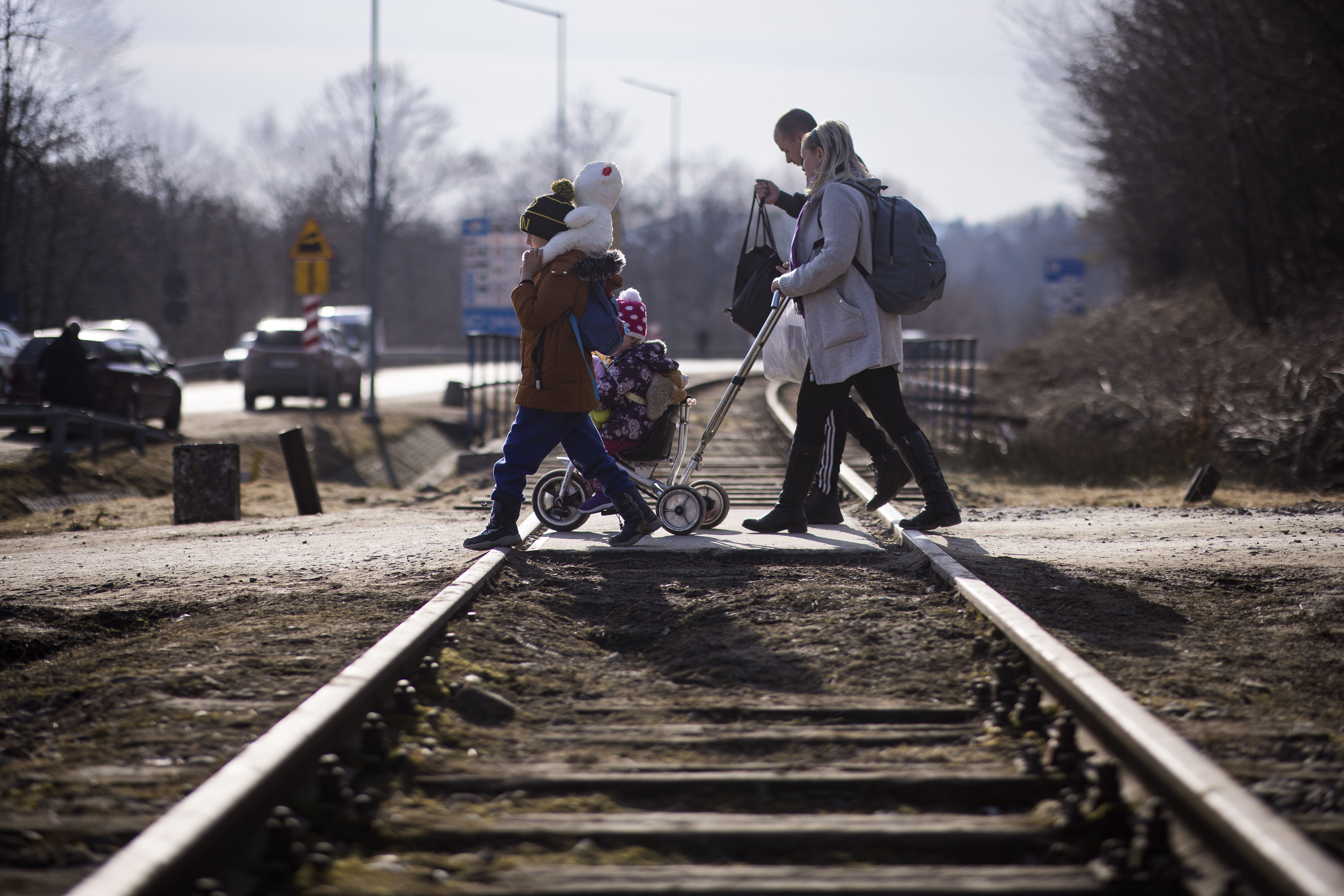UK spending more aid on refugees at home than on assistance to poor countries
Statistics on last year’s spending show much of slashed UK aid went on domestic costs as help for Africa plummeted.

Your support helps us to tell the story
From reproductive rights to climate change to Big Tech, The Independent is on the ground when the story is developing. Whether it's investigating the financials of Elon Musk's pro-Trump PAC or producing our latest documentary, 'The A Word', which shines a light on the American women fighting for reproductive rights, we know how important it is to parse out the facts from the messaging.
At such a critical moment in US history, we need reporters on the ground. Your donation allows us to keep sending journalists to speak to both sides of the story.
The Independent is trusted by Americans across the entire political spectrum. And unlike many other quality news outlets, we choose not to lock Americans out of our reporting and analysis with paywalls. We believe quality journalism should be available to everyone, paid for by those who can afford it.
Your support makes all the difference.The UK is spending more aid on hosting refugees at home than on health and humanitarian assistance for poor countries, statistics on last year’s finances show.
Spending was down £3 billion from a year earlier to £11.4 billion in 2021, when the Government slashed the aid budget from 0.7% to 0.5% of national income.
Bilateral aid, which is delivered to countries by the UK directly, took the biggest hit, according to figures released by the Foreign, Commonwealth and Development Office (FCDO) on Wednesday.
People already facing poverty, climate change and famine are paying the price for the increase in the Home Office’s UK-based refugee costs
It fell by £2.4 billion in a year, compared to a £0.7 billion drop in aid going to multilateral institutions including the World Bank.
UK spend on bilateral Official Development Assistance (ODA) decreased across all sectors except “refugees in donor countries,” the largest beneficiary, which saw an increase of nearly 68% to reach £1 billion.
“The increase was primarily driven by an increase in Home Office ODA spend, partly due to increased accommodation costs for the rising number of asylum seekers coming to the UK,” the FCDO said.
The next largest amount of bilateral ODA went to health and economic infrastructure and services, with humanitarian aid dropping out of the top three sectors.
Rishi Sunak was criticised for the cut in the foreign aid budget when he was chancellor, as well as setting a precedent for letting the Home Office and other departments use the pot, and stretching the rules on what can be counted as aid.
Chancellor Jeremy Hunt announced in last week’s autumn statement that overseas aid budget will not be returned to its goal of 0.7% of national income “until the fiscal system allows”.
The FCDO statistics show that Home Office ODA spending jumped by 74% between 2020 and 2021 to £1.04 billion.
, Labour’s shadow Cabinet minister for international development, said: “Rather than solving the spiralling costs at the Home Office, the Foreign Secretary has simply bailed out the Home Secretary with a blank cheque from Britain’s aid budget.”
Bilateral ODA to Africa – the region receiving the largest proportion of the direct aid – fell by £883 million in a year, according to the figures.
Ian Mitchell, a senior policy fellow at the Centre for Global Development, tweeted: “Bilateral spend in Africa fell to its lowest level in over a decade, at £1.7bn (even less in real terms)
“This puts the UK behind the US, EU, Germany, France and likely Japan in its support to the continent.”
The economist added: “Overall, it’s hard to find much to like about how these cuts were implemented.”
The publication of 2021’s spending came a day after Foreign Secretary James Cleverly signalled a further £800 million cut in the UK’s overseas aid spending for this financial year.
In a written ministerial statement, Mr Cleverly said the FCDO’s estimate of its planned ODA spending for 2022-23 is £7.5 billion – down from last year’s £8.2 billion.
Oxfam called the decision “short-sighted and immoral”.
“Food crises, conflict and climate change are forcing millions of people to flee their homes,” said Katy Chakrabortty, head of policy and advocacy at the organisation.
“UK aid is already barely a third of the amount given just three years ago. Instead of cutting vital lifelines the Government should be raising additional resources to strengthen them.”
Labour MP Sarah Champion, chairwoman of the international committee, said: “The Government has spent money on Afghan and Ukrainian refugees in the UK and committed more in the Autumn Statement, which is welcome.
“This money is vital but should not be drawn from the aid budget and the Government should be absolutely clear about that.”
Simon Starling, director of policy, advocacy and research, at the UK network for international development organisations Bond, said: “People already facing poverty, climate change and famine are paying the price for the increase in the Home Office’s UK-based refugee costs…
It is shocking that we are now spending more UK aid on this rather than on health, humanitarian assistance, education or water and sanitation.”